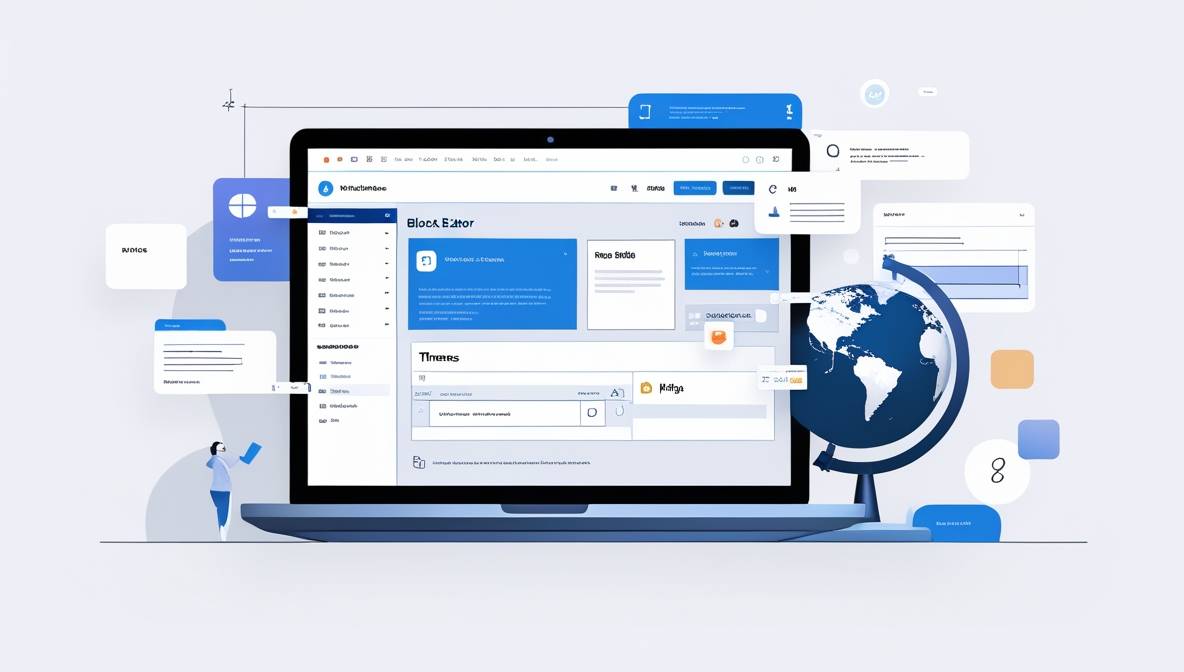WordPress is an immensely popular and versatile content management system (CMS) used by millions worldwide for creating, managing, and designing websites without the necessity to know how code operates beneath the surface of your web pages – this can be accomplished simply through a user-friendly graphical interface.
Its flexible nature allows users from various backgrounds – whether they are beginners or seasoned professionals in content creation – to customize their sites according to individual needs and preferences by selecting themes, plugins, among other features that WordPress offers; moreover, the platform has a robust security system which ensures user data is safe.
Being open-source software makes it freely available under its own dedicated license – GNU General Public License version 2 or later (GPLv2+). Not only does this make training and learning about website creation easy but also promotes innovation among the WordPress community, leading to continuous improvement of features within the system itself.
This combination of user-friendliness, customization options, robust security measures along with its open-source model makes WordPress an irreplaceable tool in today’s digital age for individuals and businesses alike wishing to establish their online presence on the internet.
The Evolution of WordPress
Developed by Matt Mullenweg and Mike Little, WordPress emerged as a fork of b2/cafelog. Its open-source nature allows continuous contributions from developers worldwide. Key milestones include:
| Year | Milestone |
|---|---|
| 2003 | Initial release as a blogging platform |
| 2005 | Introduction of themes and plugins |
| 2010 | Launch of WordPress 3.0 with custom post types |
| 2018 | Gutenberg block editor release |
| 2023 | 20th anniversary with over 60,000 plugins |
Core Features of WordPress
- User-Friendly Interface
The dashboard provides intuitive navigation for content creation, media uploads, and site customization. - Themes and Plugins
- Themes: Over 11,000 free and premium designs (e.g., Astra, Divi) adjust layouts, colors, and typography.
- Plugins: Extend functionality with tools like Yoast SEO (on-page optimization) and WooCommerce (e-commerce integration).
- Scalability
WordPress supports sites ranging from personal blogs (e.g., 1-10 pages) to multinational platforms (e.g., BBC America, Sony Music). - SEO Capabilities
Built-in features like clean permalinks, image alt text, and schema markup improve search engine rankings.
WordPress.com vs. WordPress.org
| Feature | WordPress.org | WordPress.com |
|---|---|---|
| Hosting | Self-hosted | Managed hosting |
| Cost | Free software (hosting fees apply) | Free plan (upgrades for premium features) |
| Customization | Full access to themes/plugins | Limited third-party plugin support |
| Monetization | Full control over ads/affiliate links | Restrictions on free plans |
Industries Using WordPress
- Publishing: The New Yorker, TechCrunch
- E-commerce: WooCommerce powers 28% of online stores.
- Education: Universities like Harvard use WordPress for course portals.
Visit: WordPress Official Website.

